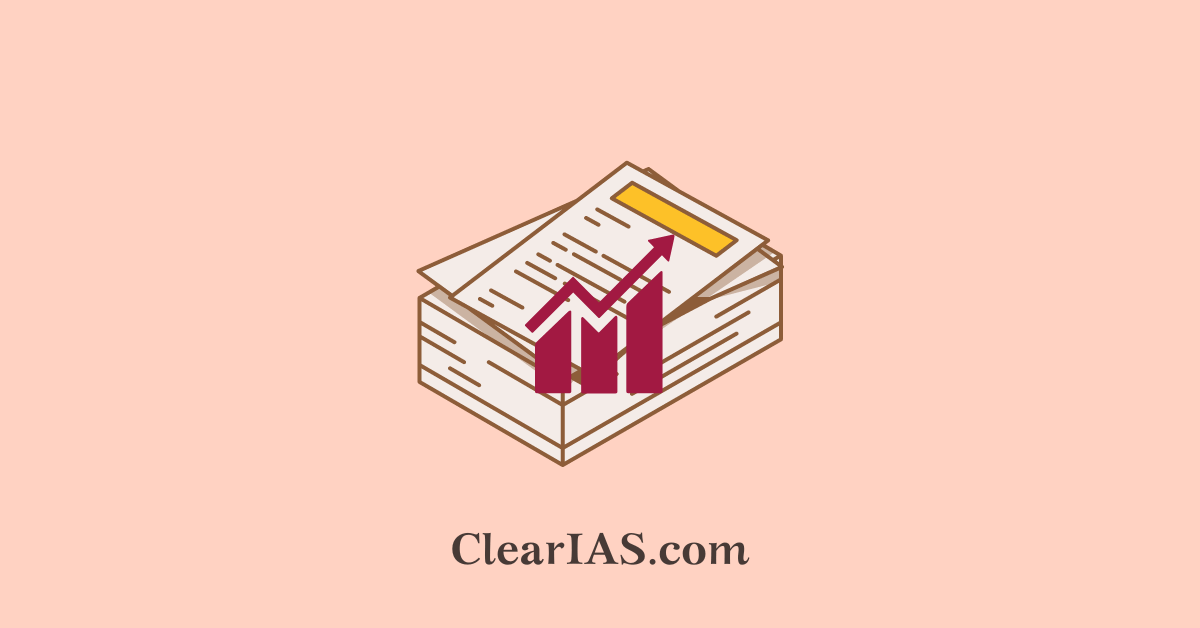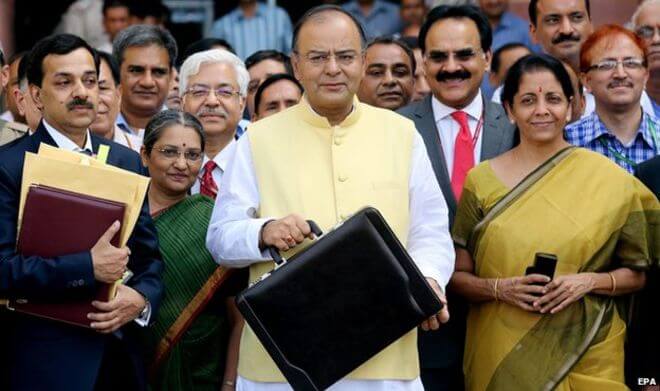
What is the process of government budgeting in India? What are the constitutional requirements regarding the annual financial statement? Read further to know more.
How knowledgeable are you regarding the government budgeting process of India?
In this post, we explain the basics of Indian Budget and Government Budgeting process for beginners.
What exactly is a budget?
As you know, the budget is a report presented by the government. It is a report of the government finances which includes revenues and outlays.
Thus, the budget can be defined as the most comprehensive report of the government’s finances in which revenues from all the sources and outlays for all activities are consolidated.
In simple terms, the budget is an annual financial statement of the revenue and expenditure of a government.
Budget in the Indian Constitution
The term ‘Budget’ is not mentioned in the Indian Constitution; the corresponding term used is ‘Annual Financial Statement’ (article 112).
What are the constitutional requirements which make Budget necessary?
- Article 265: provides that ‘no tax shall be levied or collected except by authority of law’. [ie. Taxation needs the approval of Parliament.]
- Article 266: provides that ‘no expenditure can be incurred except with the authorisation of the Legislature’ [ie. Expenditure needs the approval of Parliament.]
- Article 112: President shall, in respect of every financial year, cause to be laid before Parliament, Annual Financial Statement.
FRBM Act
The Fiscal Responsibility and Budget Management (FRBM) Act was passed by the Indian Parliament in 2003 for better budget management.
The FRBM act also provided for certain documents to be tabled in the Parliament of India, along with Budget, annually with regards to the country’s fiscal policy.
Budget Documents

Do you know that the Annual Financial Statement is only one of the several budget documents presented by the Finance Minister?
The Budget documents presented to Parliament comprise, besides the Finance Minister’s Budget Speech, the following:
- Annual Financial Statement (AFS) – Article 112
- Demands for Grants (DG) – Article 113
- Appropriation Bill – Artice 114(3)
- Finance Bill – Article 110 (a)
- Memorandum Explaining the Provisions in the Finance Bill.
- Macro-economic framework for the relevant financial year – FRBM Act
- Fiscal Policy Strategy Statement for the financial year – FRBM Act
- Medium Term Fiscal Policy Statement – FRBM Act
- Medium Term Expenditure Framework Statement – FRBM Act
- Expenditure Budget Volume-1
- Expenditure Budget Volume-2
- Receipts Budget
- Budget at a glance
- Highlights of Budget
- Status of Implementation of Announcements made in Finance Minister’s Budget Speech of the previous financial year.
There are also other related documents like Detailed Demands for Grants, Outcome Budget, Annual Reports and Economic Survey presented along with the budget documents in Parliament.
PS: The documents shown at Serial 1, 2, 3 and 4 are mandated by Art. 112,113, 114(3) and 110(a) of the Constitution of India respectively, while the documents at Serial 6,7, 8 and 9 are presented as per the provisions of the Fiscal Responsibility and Budget Management Act, 2003. Other documents are in the nature of explanatory statements supporting the mandated documents with narrative or other content in a user-friendly format suited for quick or contextual references. Hindi version of all these documents is also presented to Parliament.
Government Budgeting: Railway Budget Presentation
Do figures related to Railways find mention in Annual Financial Statement or are they part of only Railway budget?
Until 2016 (for 92 years), the budget of the Indian Railways was presented separately to Parliament and dealt with separately. Even then the receipts and expenditure of the Railways formed part of the Consolidated Fund of India and the figures relating to them are included in the ‘Annual Financial Statement’.
The last Railway Budget was presented on 25 February 2016 by Mr. Suresh Prabhu.
Since 2017, Railway Budget is merged with the Union Budget.
Government Budgeting: Union Budget Presentation
In India, the Budget is presented to Parliament on such date as is fixed by the President.
Between 1999 to 2016, the General Budget was presented at 11 A.M. on the last working day of February.
However, since 2017, the Indian Budget is presented on 1 February. As a convention, Economic Survey is also tabled in the Parliament – one day prior to budget submission, ie on January 31.
Note: In an election year, Budget may be presented twice — first to secure Vote on Account for a few months and later in full.
Vote on Account
The discussion on the Budget begins a few days after its presentation.
If the Parliament is not able to vote the entire budget before the commencement of the new financial year (ie. within 1 month or so), the necessity to keep enough finance at the disposal of Government in order to allow it to run the administration of the country remains. A special provision is, therefore, made for “Vote on Account” by which Government obtains the Vote of Parliament for a sum sufficient to incur expenditure on various items for a part of the year.
Normally, the Vote on Account is taken for two months only. But during the election year or when it is anticipated that the main Demands and Appropriation Bill will take a longer time than two months, the Vote on Account may be for a period exceeding two months.
So what exactly is Vote on Account?
Vote on Account is a special provision by which the Government obtains the Vote of Parliament for a sum sufficient to incur expenditure on various items for a part of the year, usually two months.
Vote on Account was widely used along with every budget before 2016 when the date of the budget presentation was the last day of February. Now vote on account is used only in special years like the election years (used along with interim budget).
Vote on Account deals only with the expenditure part. But the interim budget, as well as full budget, has both receipt and expenditure side.
So presentation and passing of vote on account is the first stage in the budget passing process. Vote on Account is necessary for the working of the government until the period the full budget is passed.
Budget Speech
The Budget Speech of the Finance Minister is usually in two parts. Part A deals with the general economic survey of the country while Part B relates to taxation proposals.
He makes a speech introducing the Budget and it is only in the concluding part of his speech that the proposals for fresh taxation or for variations in the existing taxes are disclosed by him.
The ‘Annual Financial Statement’ is laid on the Table of Rajya Sabha at the conclusion of the speech of the Finance Minister in Lok Sabha.
Latest Budget
You can read the highlights of Budget 2020-2021 here.
Latest Economic Survey
You can read the highlights of the Economic Survey 2019-2020 here.
Conclusion
In conclusion, the government budget plays a critical role in the economy of any country. It serves as a blueprint for the allocation of resources and guides the government’s spending decisions. A well-designed budget can have a positive impact on economic growth, employment, and social welfare.
Read: Interim Budget 2024






Please update economy section.
@ Rasika – Sure. We have been creating a lot of new study materials in all subjects and updating the existing – including Economy. Subscribe to our emails, so that you will not miss any updates.
Thank u so much